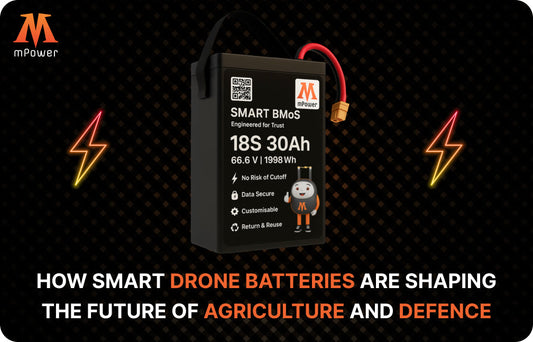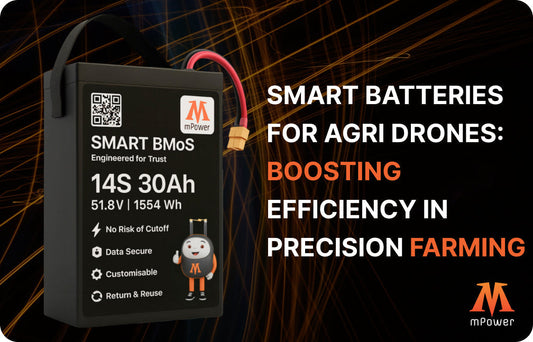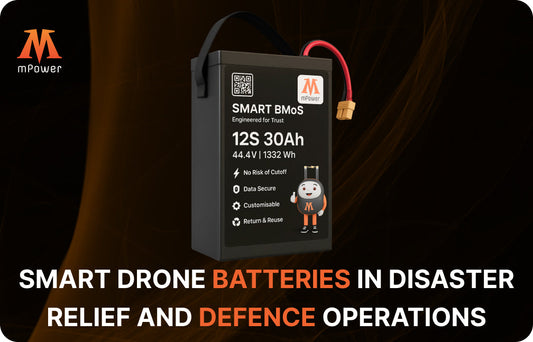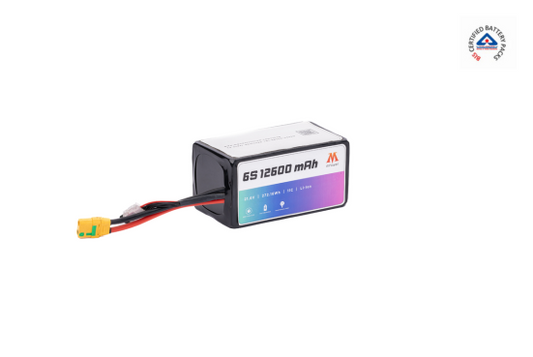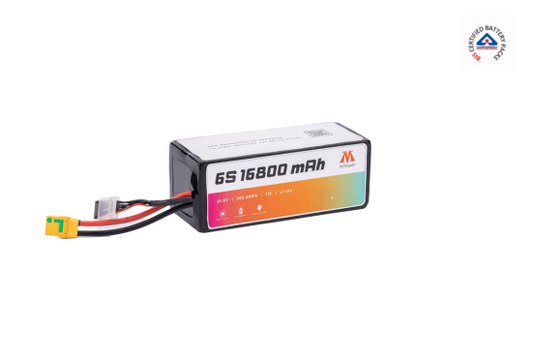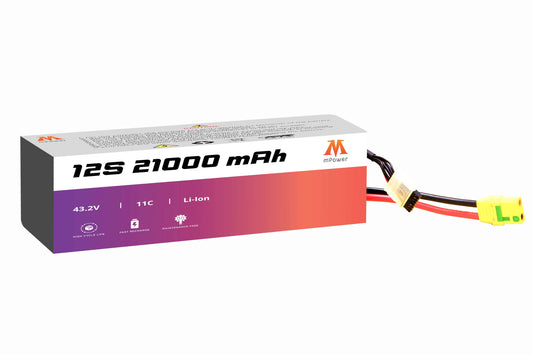
Agricultural drones have revolutionized modern farming, offering efficiency and precision in spraying, mapping, and monitoring. Among the leading components of these drones are their high-performance batteries, which power critical farming operations. mPower batteries stand out in this sector, providing long-lasting energy solutions that ensure drones operate efficiently. However, as the demand for the best drones for agriculture spraying increases, so does the need for responsible battery disposal and recycling. Proper recycling not only helps in reducing environmental impact but also promotes sustainability in the agricultural drone industry.
Why Agri Drone Battery Recycling Matters
The lithium-ion batteries used in agricultural drones contain valuable materials like lithium, cobalt, and nickel, which can be harmful if not disposed of properly. Unregulated disposal contributes to environmental pollution and resource wastage. Recycling these batteries helps recover essential materials, reduces reliance on new mining activities, and ensures safer handling of hazardous waste.
Environmental and Economic Benefits of Recycling
Recycling agricultural drone batteries has both environmental and economic advantages:
Reduces Pollution:
Proper recycling prevents toxic battery materials from seeping into soil and water sources.
Conserves Resources:
Extracting lithium, cobalt, and nickel from old batteries decreases the need for extensive mining operations.
Supports a Circular Economy:
Recovering battery materials allows for their reuse in new battery production, reducing overall waste.
Enhances Farm Sustainability:
Farmers who adopt recycling practices contribute to eco-friendly farming operations, ensuring minimal environmental impact.
Best Practices for Recycling Agriculture Drone Batteries
Follow Manufacturer Guidelines:
Many battery manufacturers, including mPower batteries, provide instructions on safe disposal and recycling.
Identify Local Recycling Centers:
Farmers should locate certified e-waste recycling facilities that accept lithium-ion batteries.
Battery Collection Programs:
Participate in industry-led take-back initiatives where manufacturers collect used batteries for proper recycling.
Safe Storage Before Recycling:
Store depleted batteries in a cool, dry place away from flammable materials to prevent leaks or fire hazards.
Reusing and Repurposing:
Some slightly degraded batteries can be repurposed for secondary applications, reducing waste.
Check Local Regulations:
Different regions have specific laws regarding the disposal of lithium-ion batteries. Staying informed helps ensure compliance and responsible recycling.
Industry Initiatives Supporting Battery Recycling
Leading drone and battery manufacturers are implementing eco-friendly programs to encourage battery recycling:
Drone Battery Take-Back Programs:
Companies now offer trade-in or take-back programs where used batteries are collected and recycled.
Sustainable Battery Development:
Researchers are exploring solid-state batteries with less toxic materials, making future recycling easier.
Government Regulations and Compliance:
Many countries are enforcing strict regulations for lithium-ion battery disposal, ensuring safer environmental practices.
Collaboration with Recycling Facilities:
Drone manufacturers and battery companies partner with e-waste recyclers to ensure proper disposal and material recovery.
Public Awareness Campaigns:
Governments and environmental organizations are increasing awareness about the importance of battery recycling through educational initiatives.
Future Trends in Agri Drone Battery Recycling
As technology evolves, new trends are emerging to make battery recycling more efficient and widespread:
Advancements in Recycling Technologies:
Innovations such as hydrometallurgical and direct recycling techniques are making material recovery more cost-effective.
Development of Biodegradable Batteries:
Scientists are researching eco-friendly alternatives to lithium-ion batteries that are easier to dispose of and recycle.
Extended Battery Lifespan:
Companies are working on increasing battery durability, reducing the frequency of replacements and the need for extensive recycling programs.
Integration of AI in Recycling Processes:
Artificial intelligence is being used to optimize battery sorting and material extraction, making recycling more efficient and scalable.
Conclusion: How mPower Batteries Contribute to a Sustainable Future
mPower batteries not only power some of the best drones for agriculture spraying but also prioritize sustainability through their recycling initiatives. By adopting responsible battery disposal methods and industry-led recycling programs, farmers and agribusinesses can reduce their carbon footprint and contribute to a cleaner environment. As the demand for agricultural drones grows, investing in eco-friendly battery solutions and understanding the drone lifecycle will play a crucial role in creating a more sustainable future for farming.
With increasing awareness, government policies, and innovative recycling technologies, the agricultural drone industry can minimize its environmental impact while ensuring efficiency in modern farming. By taking action today, we can create a greener tomorrow for sustainable agriculture.
Click here to check the mPower agriculture drone battery price.





